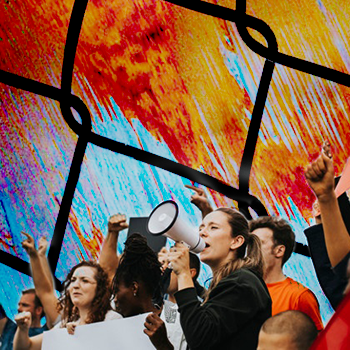
“Social Justice in the Central Valley: A Community Focused Conference” will be held in day and evening sessions on six days over the next three weeks. Free and open to the public, it will be held entirely on campus.
The conference will examine social justice issues from both global and local perspectives with speakers delivering straight-forward, thought-provoking and powerful presentations, according to organizer James Tuedio, dean of the College of Arts, Humanities and Social Sciences.
“I try to find people who have their boots on the ground,” he said. “They have a passion for what they are doing. They have knowledge and methodologies that they’ve acquired through careful training and practice, and they’re going into communities and engaging with the problems. So far, I haven’t been bored by any of these speakers.”
Before considering them for the conference, Tuedio ensures that each speaker is directly connected to social justice issues and tackling problems daily in communities.
Among the presentations, the conference will feature an art installation titled “Iztali - Reality is a Dream” in the University Gallery on Wednesday, Nov. 6. Created by Caleb Duarte, a professor at Fresno City College, the installation is billed as a “call to conscience” that can inspire participants to ponder the plight of desperate migrants who have fled violence and abysmal living conditions in their home countries.
New this year, Stan State’s GIS Day is included as part of the conference. Scheduled for Nov. 13 and titled “Geography Meets Humanities: A Focus of Social Justice,” the day will include discussion on the ways global information system technology is being used to reveal environmental, infrastructure and other inequities while showing trends and directing researchers toward possible solutions.
The conference will also include presentations by speakers who were originally scheduled to participate in last year’s event but were cancelled when smoke from massive wildfires in Northern California inundated the Valley, causing unhealthy air quality conditions and a campus closure.
Tuedio views the conference as an opportunity for students, faculty, staff and the public to learn more about social justice issues from a variety of perspectives, then draw their own conclusions.
“The goal here is not to indoctrinate people. It’s to wake us up,” he said. “It’s to create a communications environment in which these ideas can resonate with people, be challenged by people and critiqued.”